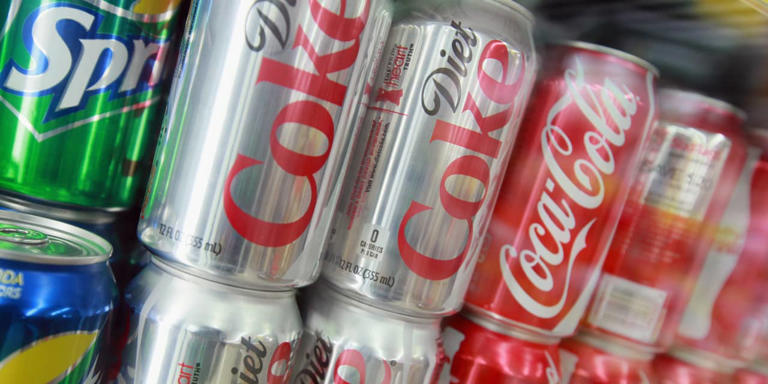On Tuesday, shares of Coca-Cola Co. experienced a modest increase, rising by 0.7% in morning trading. This uptick followed a robust second-quarter earnings report that showcased the company’s ability to effectively navigate pricing strategies and drive concentrate sales despite facing challenges in specific markets.
For the second quarter of the fiscal year, Coca-Cola reported a net income of $2.41 billion, translating to 56 cents per share, which represents a slight decrease from the $2.55 billion, or 59 cents per share, reported during the same period last year. Despite this decrease in net income, the company performed notably well on an adjusted basis. When excluding nonrecurring items such as one-time transaction losses, Coca-Cola’s adjusted earnings per share (EPS) rose by 7% to 84 cents. This figure exceeded the FactSet consensus estimate of 81 cents and extended Coca-Cola’s impressive streak of beating EPS expectations to 19 consecutive quarters, according to data from FactSet.
Coca-Cola’s revenue for the quarter increased by 3.3% to $12.36 billion, surpassing the FactSet consensus estimate of $11.78 billion. This revenue growth was primarily driven by a 9% rise in price and mix, with approximately half of this increase attributed to markets experiencing high inflation. The remainder came from strategic pricing adjustments implemented by the company. Additionally, concentrate sales grew by 6%, with notable strength observed in Latin America and the Asia Pacific regions, which contributed significantly to the company’s revenue performance.
Unit case volume, a key indicator of sales volume, rose by 2% overall during the quarter. This growth was supported by a 3% increase in sparkling soft drinks, including a 2% rise in trademark Coca-Cola and a 6% increase in Coca-Cola Zero Sugar. However, the North American market faced challenges, with both concentrate sales and unit case volume declining by 1%. The decline was largely driven by decreased sales in water, sports drinks, coffee, tea, and sparkling flavors, which outweighed gains in juice, value-added dairy, and plant-based beverages.
James Quincey, Coca-Cola’s CEO, addressed the volume decline in North America during the post-earnings call with analysts. He attributed the softness in away-from-home channels as a significant factor affecting performance. In response, Coca-Cola is implementing strategies to counteract these challenges by partnering with foodservice customers to promote food and drink combo meals. This initiative is aimed at driving consumer traffic and increasing beverage consumption.
In addition to these efforts, Coca-Cola is leveraging artificial intelligence (AI) to enhance its sales strategies. The company is piloting an AI-driven service designed to send personalized messages to retailers, suggesting items based on historical orders and market data. Early results from these AI-driven initiatives indicate that retailers receiving these recommendations are over 30% more likely to purchase the suggested stock-keeping units (SKUs). This increase in purchase likelihood is expected to lead to incremental sales for both the retailers and Coca-Cola.
As a result of the positive performance and strategic initiatives, Coca-Cola has updated its full-year guidance. The company now expects adjusted EPS growth to range between 5% and 6%, up from the previous range of 4% to 5%. Similarly, the guidance for comparable net revenue growth has been revised to 5% to 6%, up from the earlier range of 4% to 5%.
Year-to-date, Coca-Cola’s stock has advanced by 10.6%, outperforming the Consumer Staples Select Sector SPDR ETF, which has gained 8.4%, and the Dow Jones Industrial Average, which has risen by 7.2%. This strong performance reflects Coca-Cola’s effective management, strategic adaptability, and resilience in the face of economic challenges.
